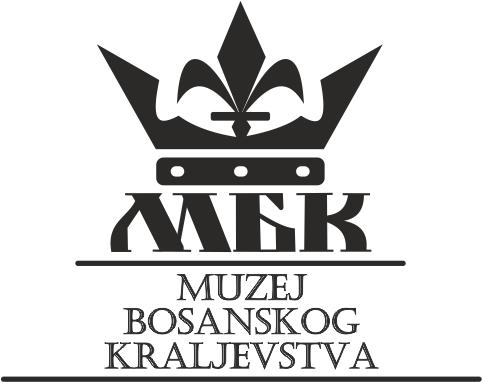Grgur Pavlović (before 1351 – 1360 at the earliest) is the elder son of Prince Pavle Hrvatinić and grandson of Prince Hrvatin Stjepanić. In addition to Grgur, Prince Pavle had another son, Vladislav Pavlović. On the Bosnian political scene, Prince Grgur Pavlović is first encountered in the charter of Ban Stjepan II Kotromanić, issued to Pavle and Vuk, sons of Prince Vukoslav Hrvatinić, in 1351, where he appeared on behalf of the Pavlovići in the demarcation of property with his relatives Vukoslavić family, who were represented by Prince Vlatko. On that occasion, the county of Zemljanik, which was previously held by their father, Prince Pavle, belonged to the Pavlović family, while the Vukoslavić family received the Banica county, which they, like the Pavlović family, inherited from their father, Prince Vukoslav. Thus, it was formalizing the already existing situation on the ground since both families owned the counties in question.
Prince Grgur Pavlović, together with his brother Vladislav, is best known for one very striking episode at the beginning of the reign of the young Ban Tvrtko. They essentially committed treason against the Bosnian ban, whose supreme authority they recognized until then, by placing themselves under the rule of the Hungarian king Ludovic I of Anjou. On that occasion, they ceded the town of Greben to the Hungarian king in exchange for the possession of Dobra Kuća in Slavonia. In the charter from 1357, by which the Hungarian king placed the Pavlović brothers under his protection and thus ended the rule of Ban Tvrtko over them, they were mentioned as “noblemen of Grebena”. Hungarian rule over Greben lasted for the next several decades, which can be traced in Hungarian documents from the second half of the 14th century. In addition to Pavlovići, the Hungarian king was also approached by Grgur Stjepanić, the Lord of Glamoč, about whom nothing is reliably known, considering that only one written trace of him has been preserved in historical sources. It is believed that he was a member of the Hrvatinić family, that is, that he was the son of Stjepan, the unnamed brother of Prince Hrvatin.
After entering Hungarian territory, Prince Grgur Pavlović already in 1358 brought a document to the Cathedral chapter in Pécs regarding the demarcation of his possessions. Two years later, in 1360, we find information that the king’s subjects caused him substantial damage, which is also the last testimony about him. There is no evidence in the source material to support the assumption that he had a son named Pavle.
Bibliography:
- Ančić, Mladen: Putanja klatna; Ugarsko-hrvatsko kraljevstvo i Bosna u XIV stoljeću, Zavod za povijesne znanosti HAZU u Zadru – Ziral, Zadar-Mostar, 1997.
- Ćirković, Sima: Istorija srednjovekovne bosanske države, SKZ, Beograd, 1964.
- Ćirković, Sima: “’Verna služba’ i ‘vjera gospodska’. Veze lične zavisnosti u bosanskoj državi” in: Rabotnici, vojnici, duhovnici; Društva srednjovekovnog Balkana, Equilibrium, Beograd, 1997, 318-335.
- Ćošković, Pejo: “Hrvatinići (Horvatići, Stipančić Hrvatinić, Stipanići, Stjepanići), (velikaški rod)” in: Hrvatski biografski leksikon, V (Gn-H), Leksikografski zavod Miroslav Krleža, Zagreb, 2002, 725-739.
- Engel, Pál: “Neki problemi bosansko-ugarskih odnosa”, Zbornik odsjeka za povijesne i društvene znanosti HAZU 16, Zagreb, 1998, 57-72.
- Mrgić-Radojčić, Jelena: “Povelja bana Stjepana II Kotromanića knezu Vuku i Pavlu Vukoslaviću”, Stari srpski arhiv 1, Laktaši, 2002, 79-92.
- Mrgić-Radojčić, Jelena: Donji Kraji. Krajina srednjovekovne Bosne, Filozofski fakultet u Beogradu-Filozofski fakultet u Banjaluci-Istorijski institut u Banjaluci, Beograd-Banja Luka, 2002.
- Smičiklas, Tadija: Codex diplomaticus regni Croatie, Dalmatiae et Slavoniae, XII, JAZU, Zagreb, 1914.
- Šišić, Ferdo: Vojvoda Hrvoje Vukčić Hrvatinić i njegovo doba, MH, Zagreb, 1902.
- Thallόczy, Ljudevit: “Istraživanje o postanku bosanske banovine sa naročitim obzirom na povelje kӧrmendskog arkiva”, Glasnik Zemaljskog muzeja 18, Sarajevo, 1906, 401-444.
- Thallóczy, Ludwig von: Studien zur geschichte Bosniens und Serbiens in mittelalter, Duncker&Humblot, München-Leipzig, 1914.
- Wenzel, Gusztáv: Magyar Diplomacziai Emlékek az Anjou Korbòl (Acta extera), II, Magyar Tudományos Akadémia, 1875.
Hungarian State Archives, signature: DL 100071.
Signature source: Engel, Pál: “Neki problemi bosansko-ugarskih odnosa”, Zbornik odsjeka za povijesne i društvene znanosti HAZU 16, Zagreb, 1998, p. 63, note 30.
